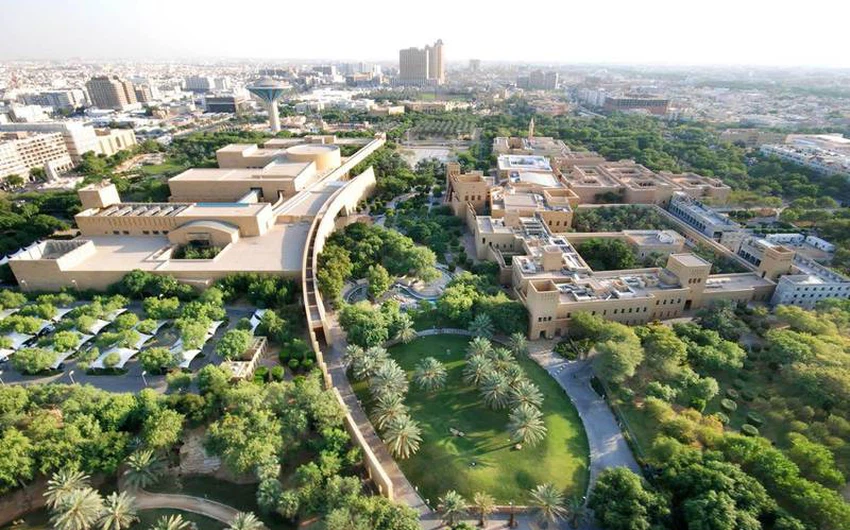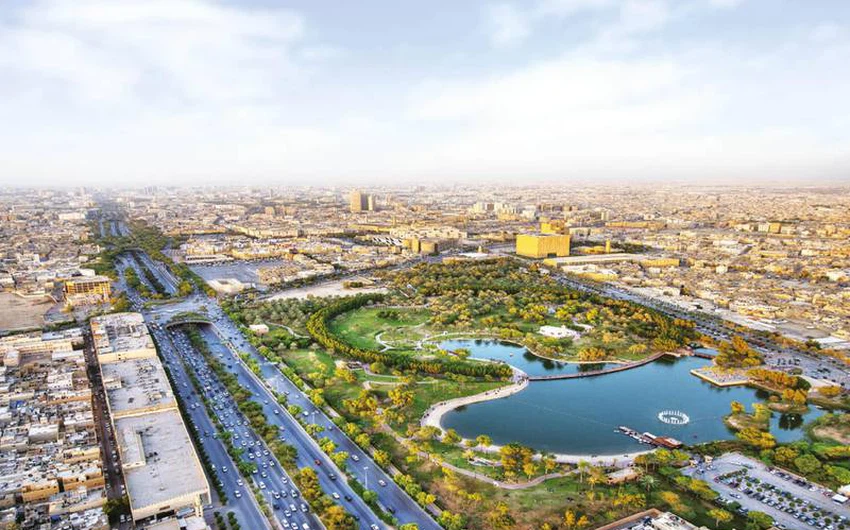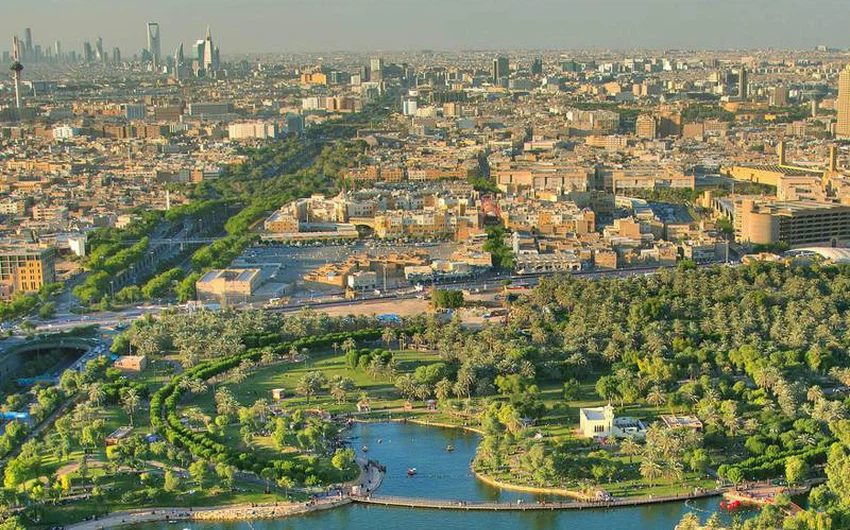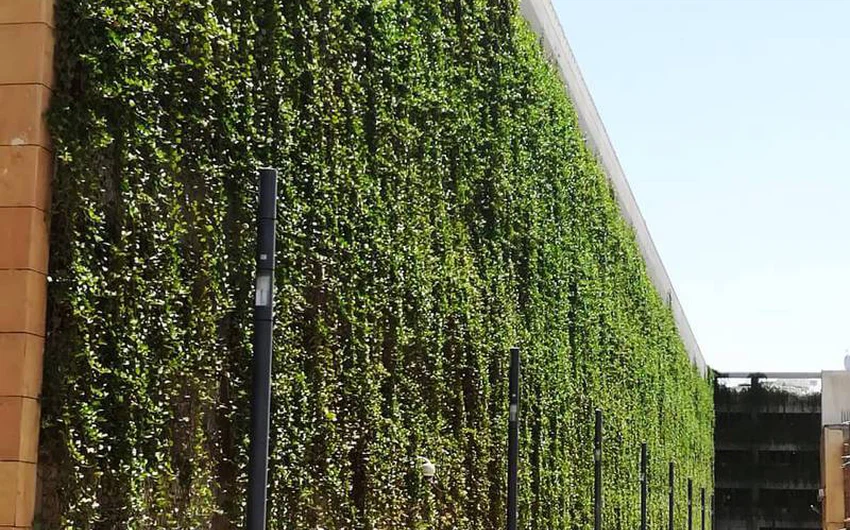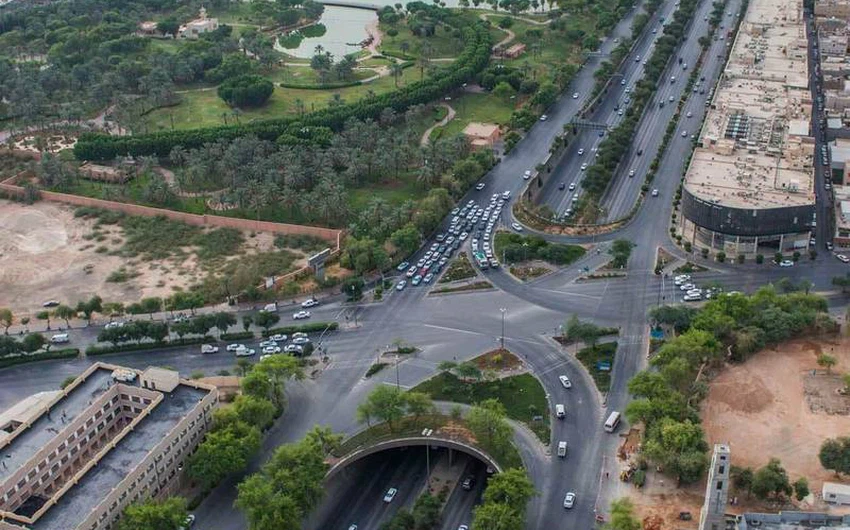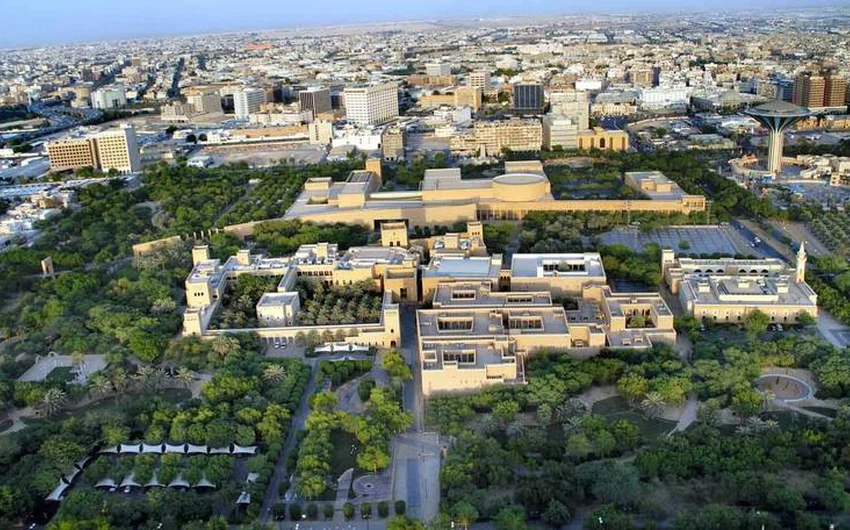What is the `Green Saudi Arabia` initiative and what are its objectives
Weather of Arabia - Saudi Crown Prince Mohammed bin Salman announced, on Monday (October 26), the establishment of the Green Initiative Foundation, and the Kingdom of Saudi Arabia announced two days earlier that it would commit to net zero carbon emissions by 2060 at the summit of the Saudi Green Initiative in Riyadh.
The goal represents a huge leap for the Green Saudi Initiative and the Green Middle East Initiative, which were announced in March, and are part of the Kingdom's Vision 2030 program to reshape its economy, placing themselves at the center of regional efforts to achieve international goals in environmental projects.
What is the Green Saudi Initiative?
Combined with a net-zero plan - where the kingdom will rapidly expand already significant investments in renewable energy - Saudi Arabia will work to restore, conserve and sustainably manage one billion hectares of land by 2040.
The Saudi Green Initiative aims to plant 10 billion trees - like rehabilitating 200 million hectares of degraded land. The goal also represents 4% of the global drive to reverse land degradation and 1% of the global effort to plant a trillion trees.
As part of the plan, 30% of the kingdom (600,000 square kilometers) will be protected areas, and efforts will be made to protect coastal environments.
The Green Middle East Initiative has a similar plan for the region. Saudi Arabia will work with countries to plant 50 billion trees across the Middle East.
Objectives of the Green Saudi Initiative:
- Planting 10 billion trees in Saudi Arabia and 50 billion trees across the Middle East.
- Reducing carbon dioxide emissions in the Middle East by 60%.
- Renewable sources to produce 50% of Saudi Arabia's electricity by 2030.
- Recycling 94% of the trash that now goes to landfill.
- Increase protected areas to more than 30% (including marine and coastal ecosystems).
- Eliminate more than 130 million tons of carbon emissions with clean hydrocarbon technology.
- Reach net zero emissions by 2060.
- The Green Saudi Initiative program aims to achieve more than 278 million tons per year in reducing carbon emissions by 2030.
- The Kingdom will join the Global Methane Pledge to contribute to reducing global methane emissions by 30% by 2030.
- Providing food to more than 750 million people in the world through the initiative.
Why are environmental projects important to the Middle East?
This relates in part to the region's commitments to international goals to mitigate climate change such as the 2015 Paris Agreement, and Saudi Arabia and the region face environmental challenges such as desertification, which is an economic threat.
The green initiative aims to increase vegetation, reduce carbon emissions, combat pollution and preserve marine life.
Sandstorms alone cost the region $13 billion annually, and air pollution is estimated to cut life expectancy by one and a half years (18 months).
The ambitious programs aim to reduce carbon emissions in the region by 60%. Currently, only 7% of energy production in the Middle East is clean, so the initiative aims to reduce more than 130 million tons of carbon emissions, and reduce global carbon emissions by more than 4 %.
The kingdom has ambitious renewable energy goals, including increasing the use of wind and solar energy, which will generate half of the country's electricity by 2030 to reduce greenhouse gas emissions.
Why are these projects important to Saudi Arabia?
Saudi Arabia's Vision 2030 program is a massive national reform plan aimed at reducing the kingdom's dependence on oil revenues. One aspect of this vision is environmental protection and climate goals that include diversifying energy production from fossil fuels to renewable sources.
As the region's largest economy, Saudi Arabia has long sought to be a leading force in shaping the Middle East and coordinating regional responses to crises from conflict to hunger to climate change, and the initiatives will chart a roadmap for the country and the region to protect the environment.
How did Saudi Arabia protect the environment in the past?
The two initiatives (Green Saudi Arabia and Green Middle East) build on the Kingdom's mission to help protect the planet which was at the core of its 2020 G20 presidency.
But it has long supported the so-called circular carbon economy, a framework that focuses on reducing carbon production and finding ways to reuse and recycle emissions.
In 2012, the kingdom launched the Saudi Energy Efficiency Program, a cornerstone of its plan to reduce carbon emissions.
The Kingdom is also planning to establish a huge new hydrogen fuel factory in the huge futuristic city of NEOM, in addition to the largest carbon dioxide purification plant in the world, with a capacity of 500,000 tons annually.
King Salman officially announced the National Program for the Circular Carbon Economy, or CCE, in November last year.
Speaking at the G20 Leaders Summit last year, Crown Prince Mohammed said the Assembly of Heads of State and Government “allows comprehensive management of emissions to mitigate climate impact challenges and promote cleaner and more sustainable energy systems, as well as develop stable and secure energy markets and energy access.”
How does the Saudi citizen view these initiatives?
Saudis see the country intensifying its efforts to raise awareness of environmental issues and is serious about nature conservation and sustainable development. Marine biologists have praised the kingdom's efforts to protect coastal and marine life last year.
Ghada Kamel, 27, a marine biology student and diving instructor from Saudi Arabia, said the initiatives came at the right time to teach the younger generation the importance of climate change and the preservation of the planet. Since last year, the Shura Council has implemented new standards and penalties for violations in order to preserve the Marine life.
Maliha Al-Sharif, 34, a Saudi architect, sees young Saudis becoming more aware of environmental issues. “For those who live in the kingdom, we have seen a drastic change in the way we interact with nature in the past seven years,” she said.
“From recycling, reusing and moving towards sustainable means of consumption and production, we have had more awareness at the grassroots level over the past few years, starting with education in schools.”
Arabia Weather App
Download the app to receive weather notifications and more..
